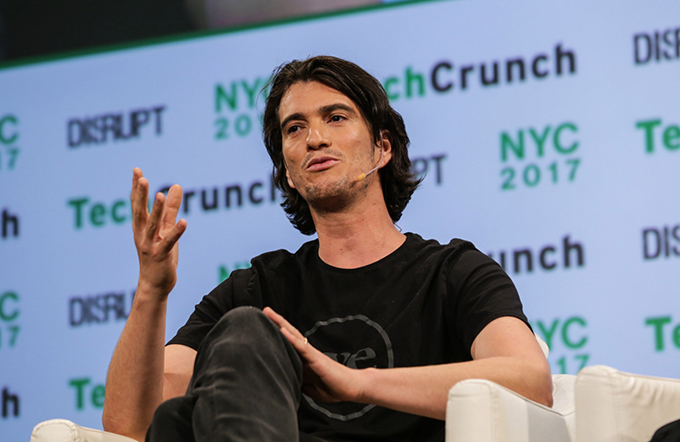| WeWork's founder does something very "I" for the CEO of something positioned as "The We Company," TC's Hardware Battlefield is back and better than ever and Tesla's latest Supercharger station is a showcase of all its best tech. Here's the Daily Crunch for July 19, 2019. 1. WeWork's founder takes an unusual early payday WeWork CEO and co-founder Adam Neumann has made a move not often seen in the world of high-profile startups nearing an exit event: He's cashed out around $700 million ahead of WeWork's impending IPO. 
Typically, this kind of thing happens after the IPO, but Neumann still remains the company's largest shareholder, according to The Wall Street Journal's report. It's a weird move, but not necessarily an altogether sinister one -- it's just not a great look when WeWork is under scrutiny for the sustainability of its cash-burning business ahead of going public. 2. Hardware Battlefield is back, and it's headed to Shenzhen TechCrunch's competition specifically designed for hardware startups is back and setting its sights on new horizons: It's in Shenzhen, China this year and happening November 11-12. Hardware remains hard, but as a startup category it's hotter than ever with the proliferation of connected home tech, affordable mass-market high-performance components and more. If you think you've got the stuff, you can apply now to compete. 3. Tesla's V3 Supercharger opens in Las Vegas This third iteration of Tesla's charging infrastructure is maybe one of the most perfect combinations of its various lines of business. It has 39 chargers, along with Powerpack batteries to store the energy collected by the Tesla solar panels that power it. The chargers can output at a peak rate of 250 kW -- but you'll need the Tesla Model 3 Long Range to take advantage of that. 4. Rent the Backyard wants to do exactly that Space: Something Americans actually often have a lot more of than they necessarily need, relative to other countries. YC-backed startup Rent the Backyard is betting that, in fact, a bunch of people could make use of some of that space by building studio apartments in their backyards and then renting them out. The startup acts as a combo contractor to build the apartment, real estate agent and property manager, and in exchange takes 50% of whatever rent results. Sounds at once dystopian and a smart counter to wastefully large property ownership? 5. FTC considers updating online child privacy laws In yet another chapter of regulators trying to catch up to the tremendous impact global tech giants are having on society, the FTC is considering revising its COPPA rule (it last revised the act, which protects child privacy online, in 2013). What needs updating, per the FTC, is how the rule applies to sites that aren't specifically kid-oriented, but that are very much kid-consumed. Yes, that means YouTube. 6. Microsoft's earnings reveal Azure growth slows, but market share still up Microsoft's Azure performance, as reported in its most recent earnings, reveals a nice snapshot of the overall cloud provider market. Its growth has slowed for the third consecutive quarter, but it's still the No. 2 provider overall, and its share relative to the rest of the pack is actually increasing (though AWS still dominates by far). Seems like the whole pie is approaching some kind of saturation, rather than Microsoft falling behind in isolation. 7. US security agencies are global internet gatekeepers An in-depth look at what happens when U.S. national security agencies meet the plans of U.S. tech companies to expand access to internet on a global scale. In some ways, the power they wield might be self-evident, but there could be a much broader-reaching effect than you realize. (Extra Crunch membership required.) |
No comments:
Post a Comment